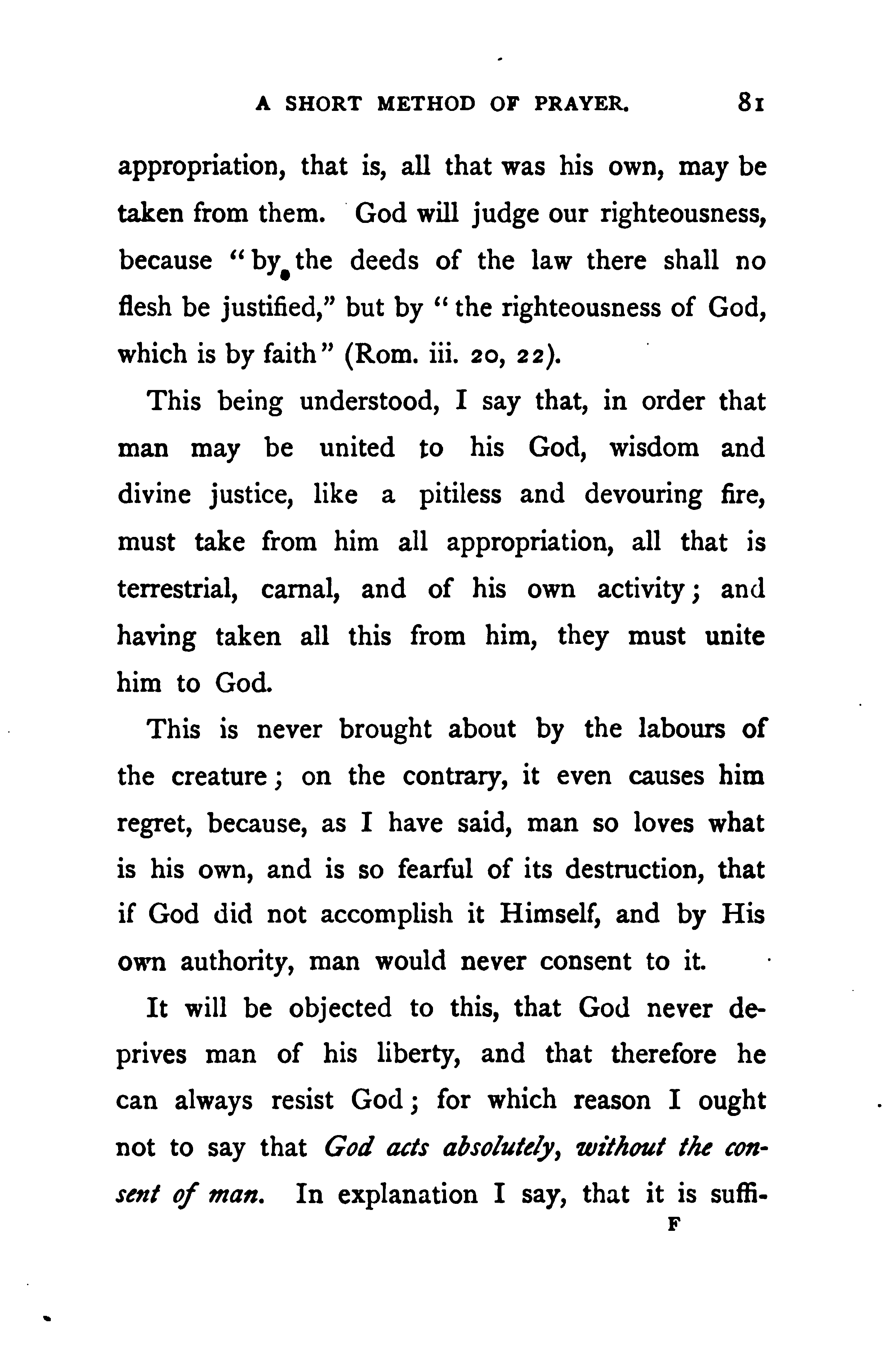appropriation,
that
is,
all
that
was
his
own,
may
be
taken
from
them.
God
will
judge
our
righteousness,
because
"by^the
deeds
of
the
law
there
shall
no
flesh
be
justified,"
but
by
"
the
righteousness
of
God,
which
is
by
faith"
(Rom.
iii.
20,
22).
This
being
understood,
I
say
that,
in
order
that
man
may
be
united
to
his
God,
wisdom
and
divine
justice,
like
a
pitiless
and
devouring
fire,
must
take
from
him
all
appropriation,
all
that
is
terrestrial,
carnal,
and
of
his
own
activity;
and
having
taken
all
this
from
him,
they
must
unite
him
to
God.
This
is
never
brought
about
by
the
labours
of
the
creature
;
on
the
contrary,
it
even
causes
him
regret,
because,
as
I
have
said,
man
so
loves
what
is
his
own,
and
is
so
fearful
of
its
destruction,
that
if
God
did
not
accomplish
it
Himself,
and
by
His
own
authority,
man
would
never
consent
to
it.
It
will
be
objected
to
this,
that
God
never
de-prives
man
of
his
liberty,
and
that
therefore
he
can
always
resist
God;
for
which
reason
I
ought
not
to
say
that
God
cuts
absolutely^
without
the
con-sent
of
man.
In
explanation
I
say,
that
it
is
suflS-
F

